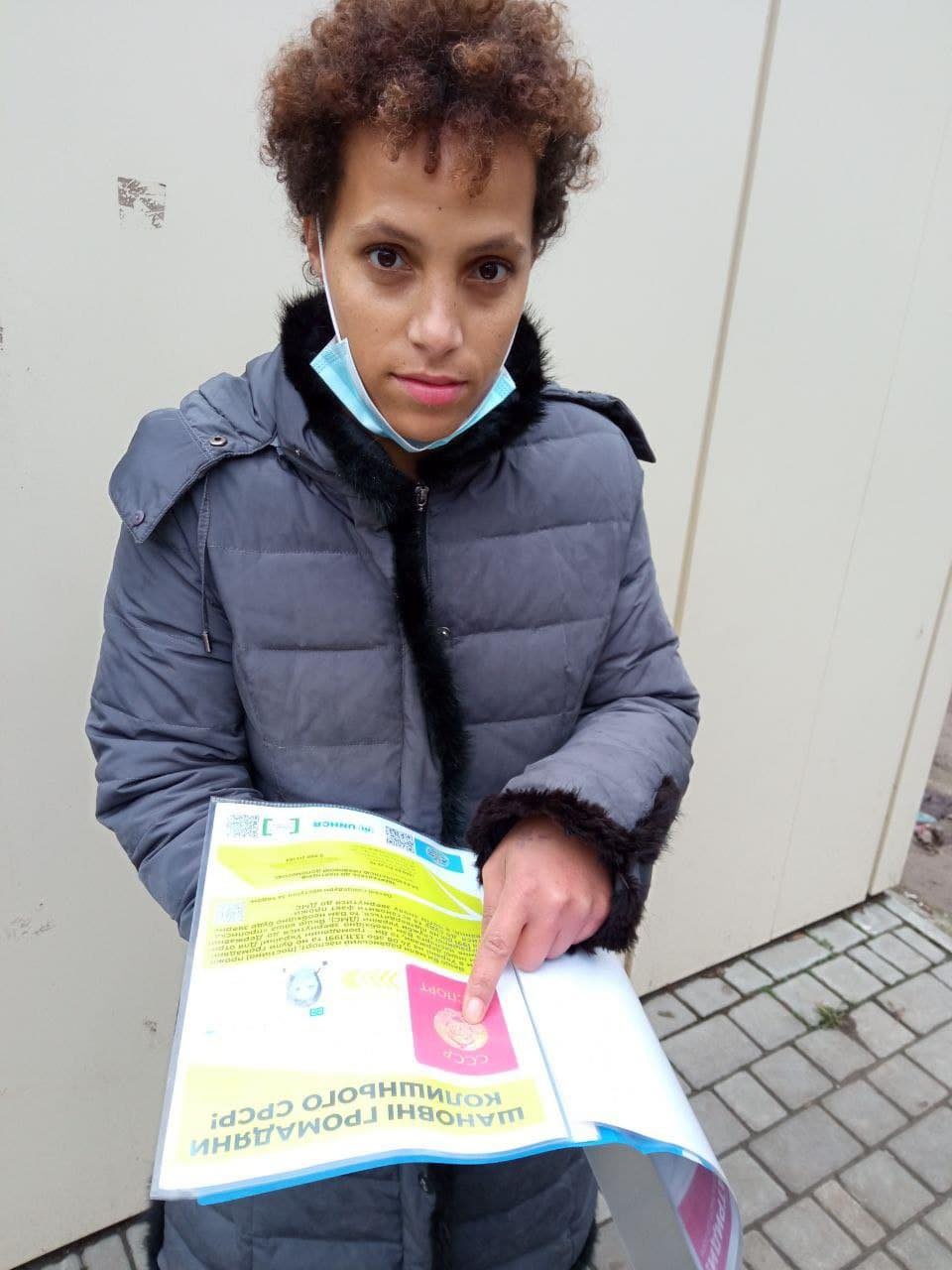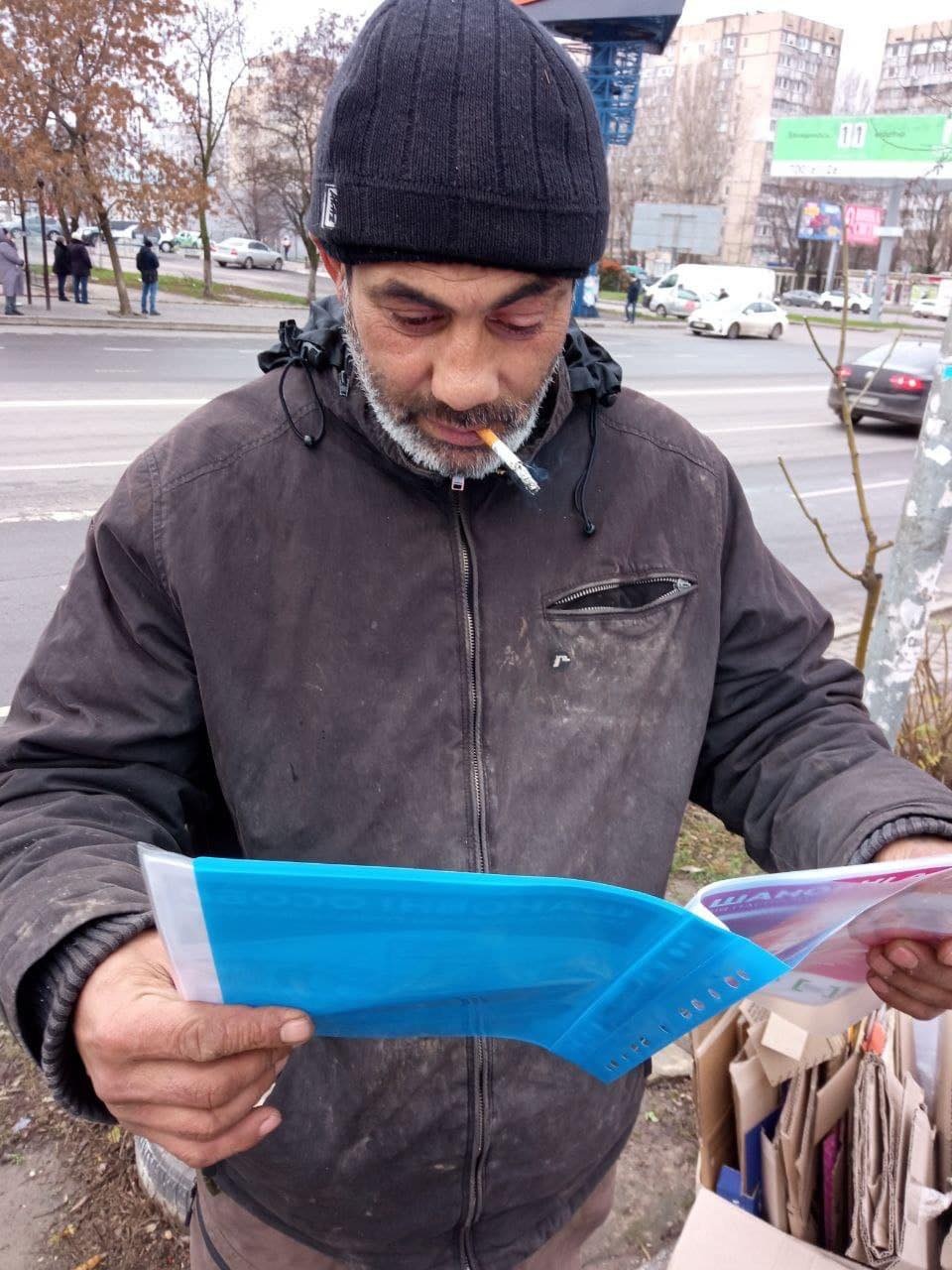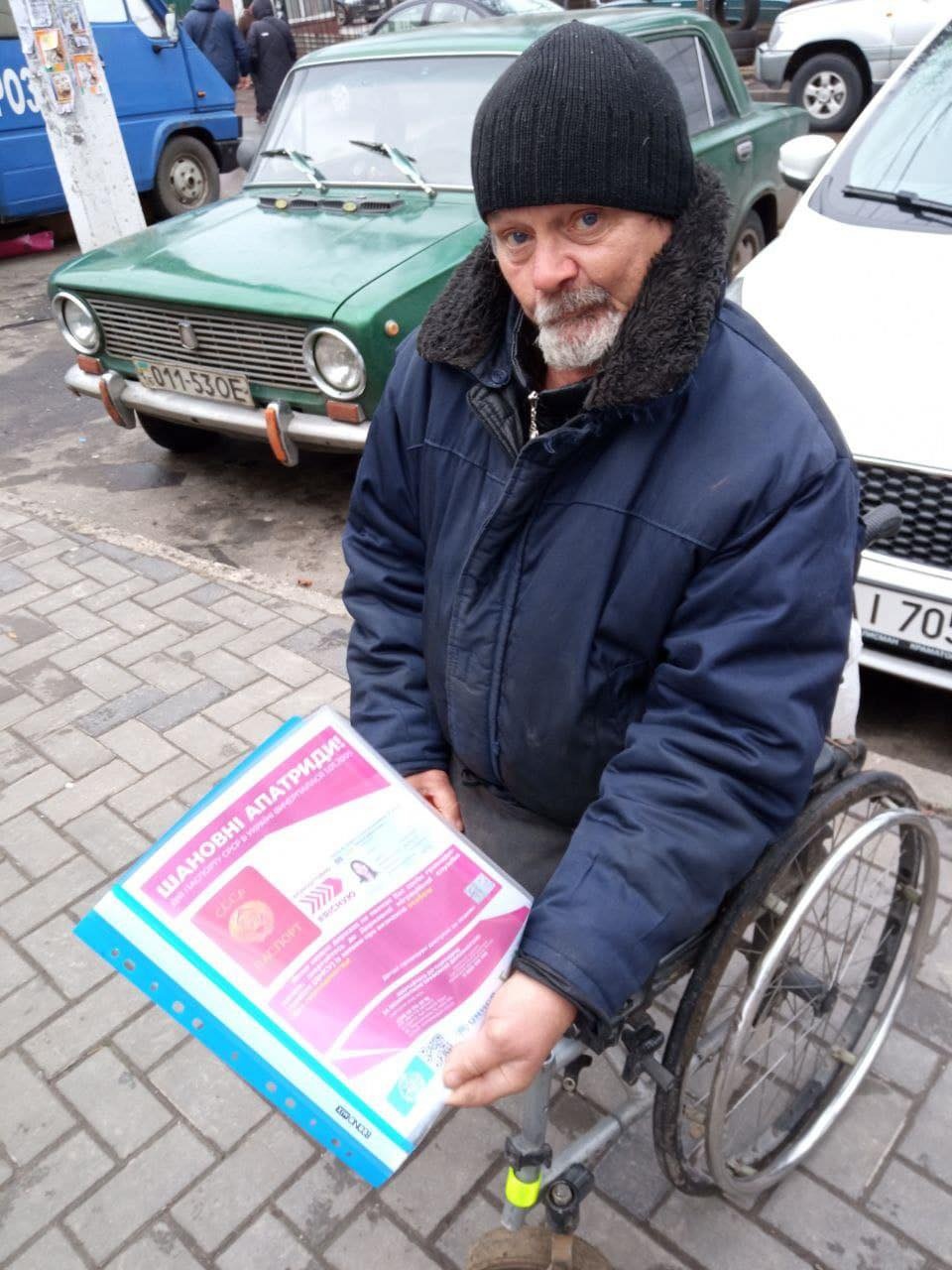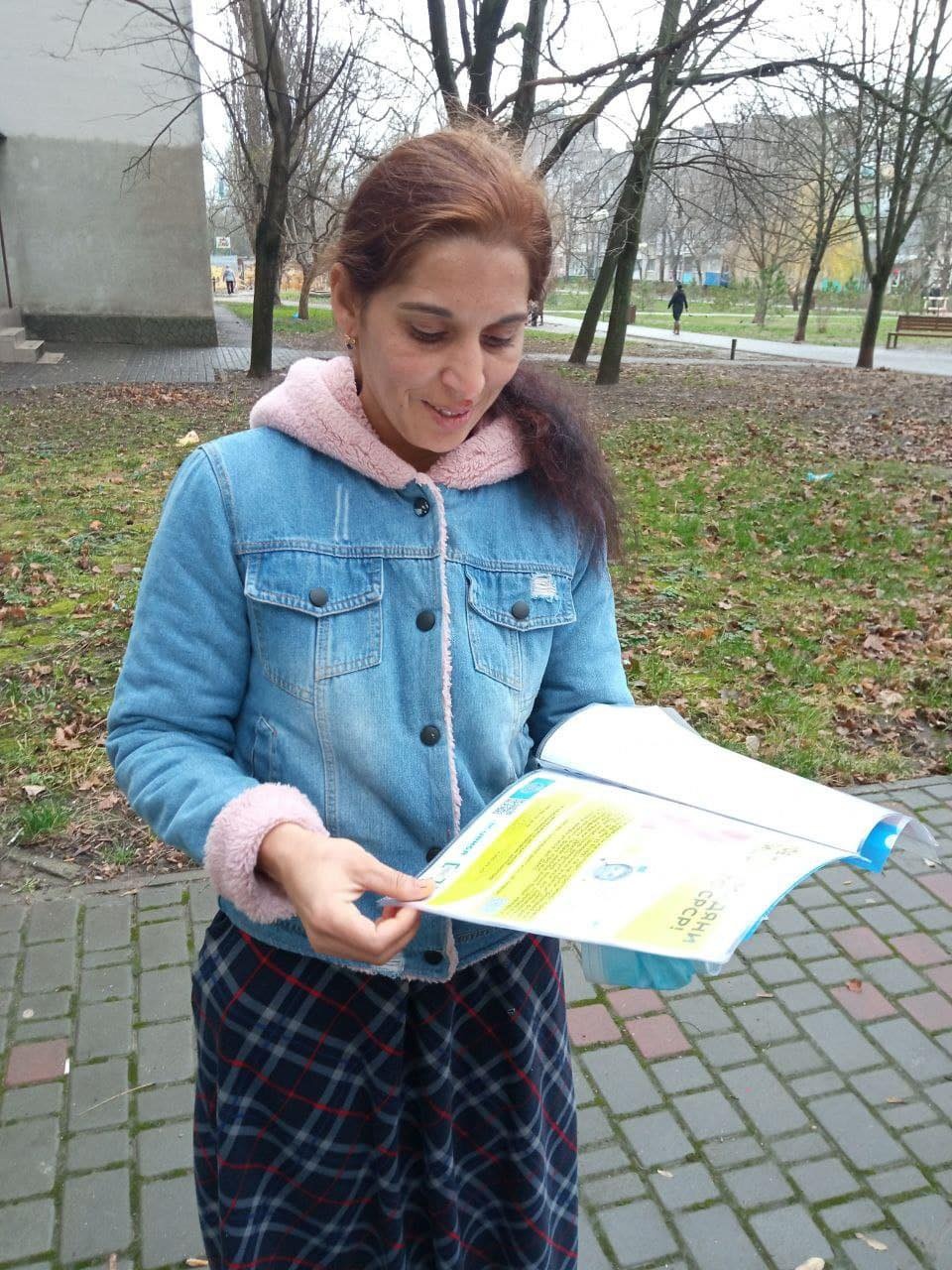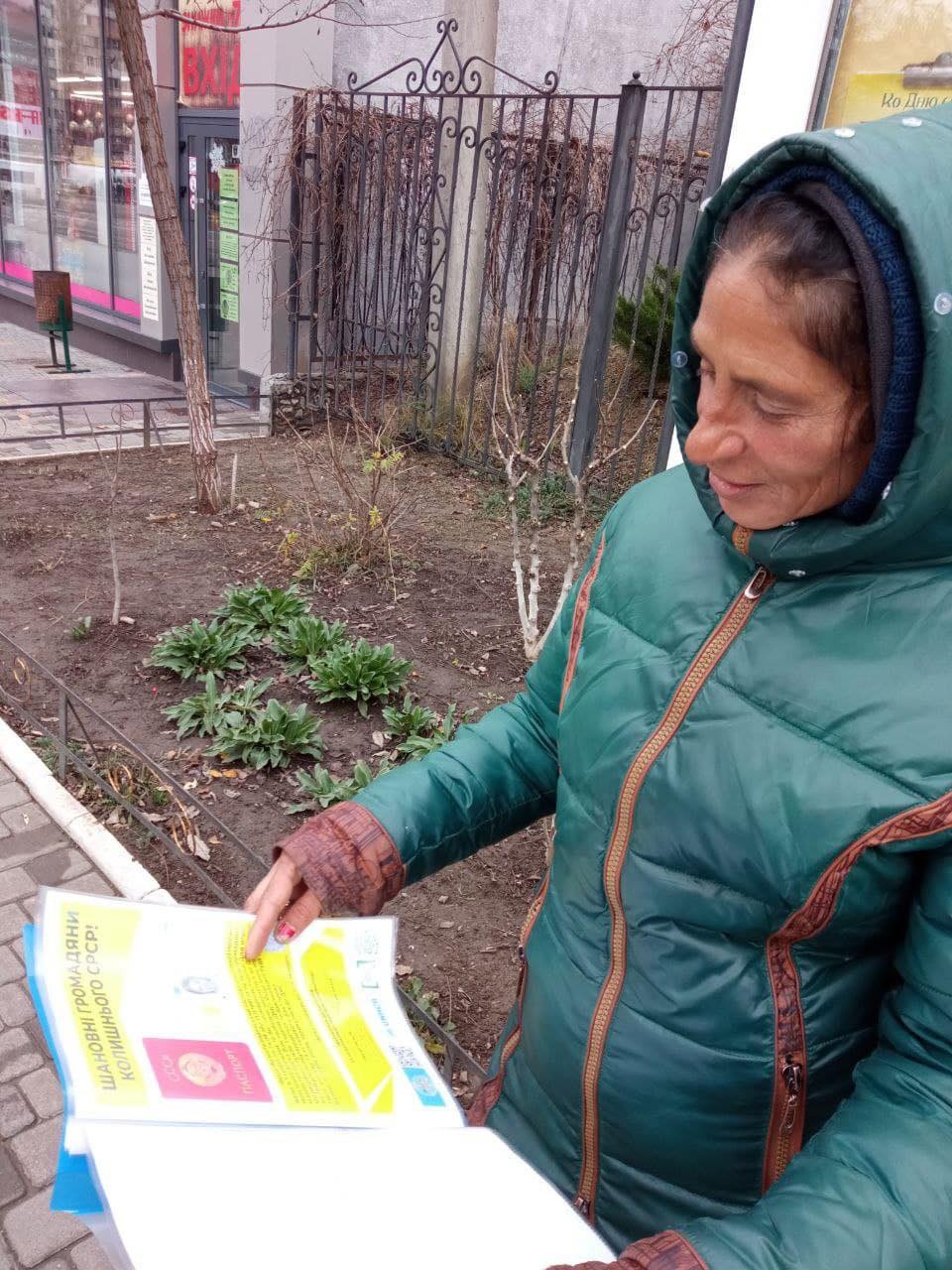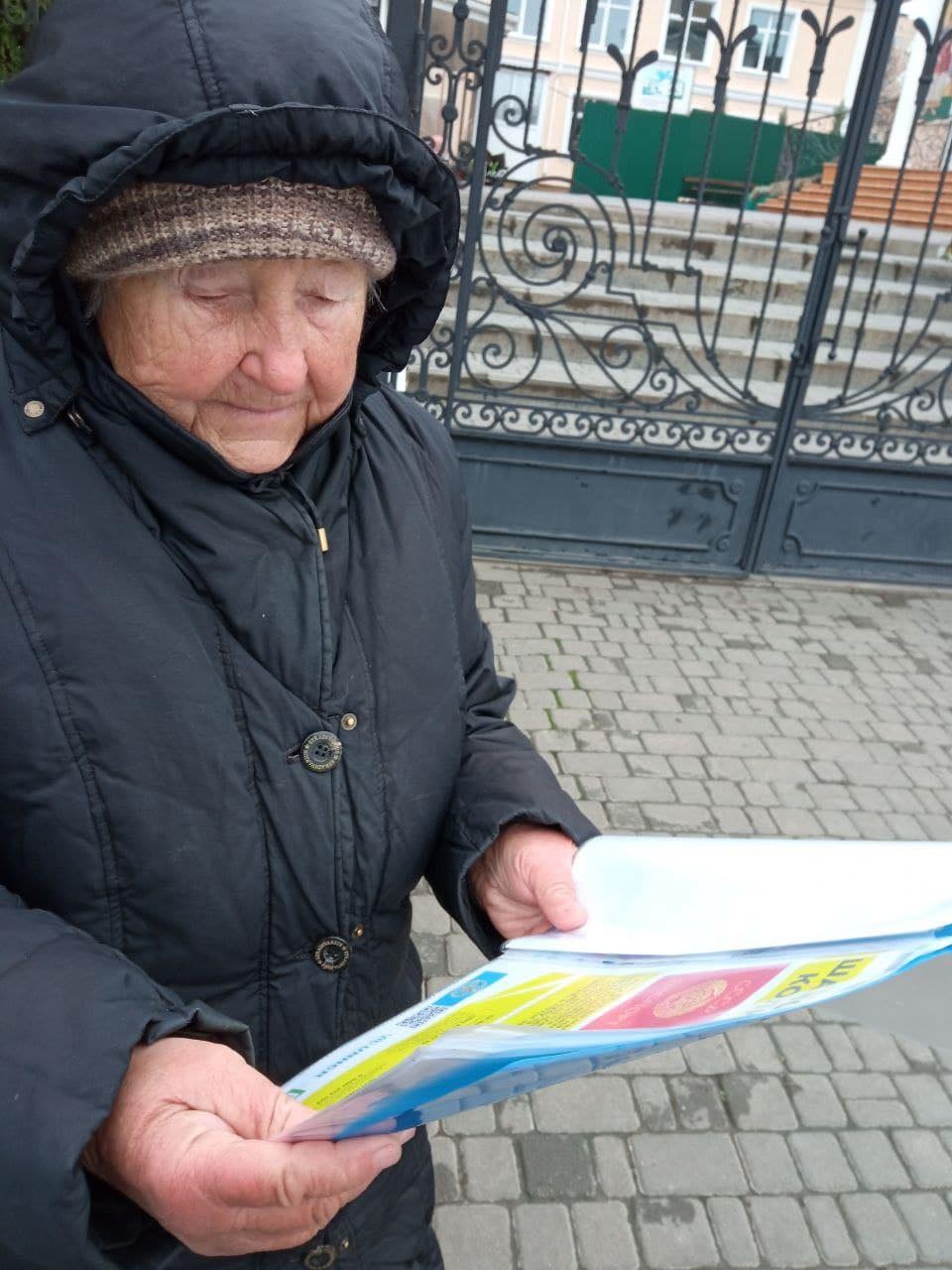Stateless Persons
Stateless Persons
Stateless people are found in all regions of the world. The majority of stateless people were born in the countries in which they have lived their entire lives. Today millions of people around the world are denied a nationality. As a result, they often aren’t allowed to go to school, see a doctor, get a job, open a bank account, buy a house or even get married.

The mural “Little Citizen”, which was opened by UNHCR in Kyiv as part of the celebration of the 5th anniversary of the global campaign to eradicate statelessness.
The mural can be found at: 11, Yaroslavskaya Str.
UNHCR assistance to stateless and persons with undetermined nationality
From the 1990’s until 2013, UNHCR has had a historic role and has worked extensively on identification, prevention and reduction of statelessness in Ukraine. UNHCR through Foundation “Assistance” supported Formerly Deported Persons (FDPs) and their descendants returning to Ukraine in the process of relinquishing their previous citizenship and acquiring Ukrainian nationality. Those assisted were mainly ethnic Crimean Tatars returning to the Autonomous Republic of Crimea from forced exile in Central Asia (mostly Uzbekistan).
The 1997 amendments to the Citizenship Law led to acquiring of Ukrainian nationality by some 25,000 stateless FDPs as of 2001. In addition, Uzbekistan and Ukraine concluded an agreement backed by both UNHCR and the OSCE High Commissioner on National Minorities facilitating acquiring of Ukrainian nationality of a further 90,000 FDPs during 1999-2001.
In 2001, following intensive advocacy by UNHCR and the Council of Europe, a new Citizenship Law of Ukraine introduced a simplified procedure for acquiring Ukrainian nationality as a result of which applicants no longer had to renounce their previous nationality (becoming stateless in the process) before applying for Ukrainian citizenship. The previous requirements for Ukrainian language proficiency and five years of lawful residence were also waived for persons with links to Ukraine, including FDPs.

From June 2017 to June 2022 (61 months), UNHCR partners: “NEEKA”, “Right to Protection”, “Tenth of April” identified and provided legal aid/representation at court, Civil Registry, SMS and CIS countries consulates in Chernivetska, Donetska, Dnipropetrovska, Kharkivska, Kyivska, Lvivska, Luhanska, Odeska and Zakarpatska oblasts to 3,422 undocumented persons. Among them:
- 2,139 persons with undetermined nationality (45% of them are Roma). As a result, 1,597 documents were obtained: 219 birth certificates on the basis of court decision establishing a fact of birth (during the year); 748 duplicates of birth certificates (including 69 foreign which were received in the period ranging from 1 month to 1,5 years) on the basis of application to Civil Registry; 630 passports (including 80 passports of foreign countries and 550 Ukrainian passports) on the basis of identity setting procedure/establishing belonging to citizenship at SMS (during 2 months)/ CIS countries consulates (from 2 to 12 months).
- 824 persons with undetermined nationality who are citizens of the former USSR, who (permanently) resided on the territory of Ukraine as of August 24 / November 13, 1991 and did not obtain the inscription "citizen of Ukraine" in their passport from the Ministry of Internal Affairs. The partners assisted in the collection of evidence and representation in the courts to establish the fact of such residence. 146 court decisions were received (some in 28 months), which became the ground establishing their belonging to the citizenship of Ukraine and issuance of the passport of a citizen of Ukraine by the SMS. 195 Ukrainian passports have been received. 46 cases represented by partners remain pending at different court instances. 3 birth certificates, as well as 20 its duplicates have been received for the former USSR nationals.
- 459 irregular stateless persons (majority were born in Russia, Moldova, other CIS countries; 27% of them are Roma). 26 of them have either a USSR passport or the Form No.1, a certificate of identity; expired residence permit; 269 have birth certificates of the former USSR republics (of them 37 birth certificates and 115 duplicates were obtained with the assistance of UNHCR partners); 204 have consular certificates on non-belonging to citizenship (74 of them were obtained with the assistance of UNHCR partners). 149 of them were represented at SMS during the stateless determination procedure and were issued the applicant certificates.
All such cases were represented by attorneys. UNHCR covered respective administrative and court fees, costs for certificates on non-belonging to citizenship of the country of origin. As a result, 2,002 persons were documented.
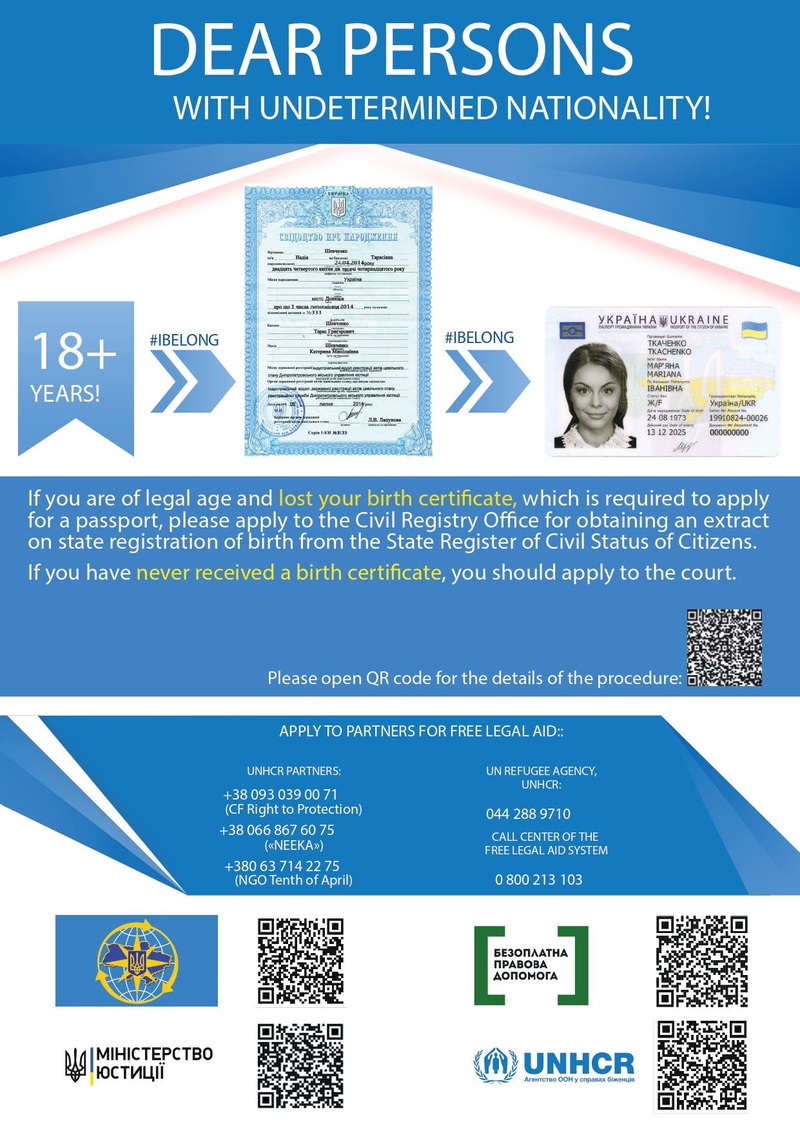
Birth registration for the first time
The state registration of a child's birth is carried out at the child's place of birth or at the place of residence of his or her parents or one of them.
Depending on the period that has passed since the birth of the child, the following documents are required for its registration:
Up to 1 year |
From 1 to 15 years |
From 16 years and older |
|
|
|
The procedure for identification and identity setting (ISP)
If a person applies for the restoration of lost documents or for the first time to obtain a passport of a citizen of Ukraine in the form of a card (ID) after reaching 18 years of age, the SMS will take measures to identify the person. The applicants shall submit a birth certificate and a passport of a citizen of Ukraine of one of the parents.
On 1.09.2021, the Cabinet of Ministers of Ukraine adopted amendments to Resolutions №289 and №302. From November 2021, the changes allow citizens who are in places of detention to apply for an ID. Moreover, people with limited mobility and people living at the NGCA are able to apply to any territorial body of the SMS (before only in Donetsk and Luhansk region). Moreover, the NGCA residents are not required to obtain an IDP certificate as a precondition for applying to the SMS. Persons who apply for a passport for the first time after reaching the age of 18 and who do not have a birth certificate may submit instead an extract from the State Register of Civil Status of Citizens. The most important changes concern the number of witnesses during the ISP: it is sufficient to bring one relative (including an ex-husband/wife), or two neighbors who have full legal capacity, have reached the age of 14 and have identity documents.
On 28.10.2022, the CoM adopted further amendments to the Resolution No 302 (via Resolution № 1220). The amendments came into force on 17 November. They are i.a. allow to: (1) enlarge the scope of the witnesses (See presentation in Ukrainian here, page 5) to “a close to the applicant person” and (2) conduct of the ISP via video conference if the witness cannot be present in person at the SMS. The passport of each witness shall be presented during the video conference, while its copy shall be sent via email to the SMS.
This is relevant for undocumented displaced persons from Crimea, the NGCA, recently occupied Ukrainian territories who moved to the Central and Western Ukraine. Their witnesses from the occupied territories would be able distantly participate in the ISP and facilitate the undocumented applicant’s access to the ID.
As of March 2020, the World bank estimated presence of 999,000 unregistered citizens (without a national ID) in Ukraine at the age of 15+ (among them 310,000 are women and 689,000 are men).
Stateless determination procedure
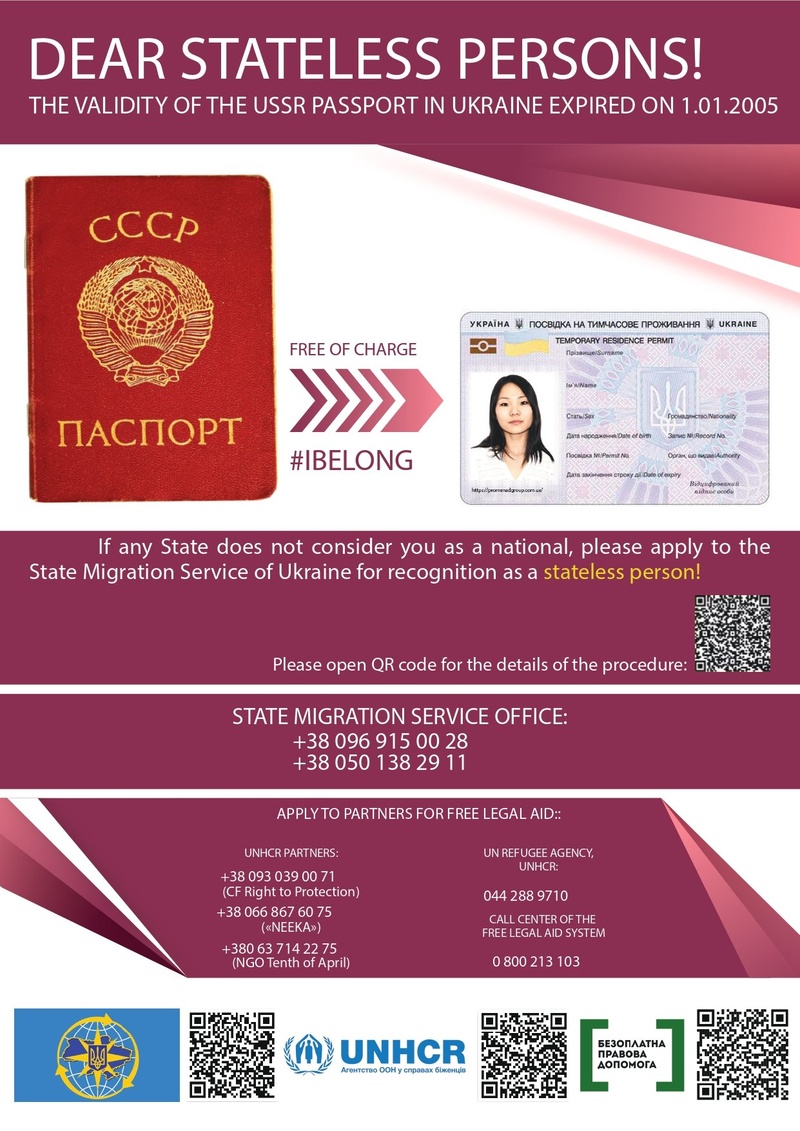
In 2013, Ukraine acceded to the 1954 UN Convention relating to the Status of Stateless Persons and to the 1961 UN Convention on the Reduction of Statelessness. On 16 June 2020, the Parliament of Ukraine adopted Law 693-IX “On amending Certain Legislative Acts of Ukraine regarding Recognition as a Stateless Person”.
The adoption of this Law represents an important step towards the identification and protection of stateless persons in Ukraine. UNHCR welcomes this achievement. The Law enables stateless persons regardless of lawfulness or unlawfulness of their stay in the territory of Ukraine, to apply to the State Migration Service of Ukraine (SMSU) with an application for recognition. In case of their recognition – they would obtain a temporary residence permit (TRP), as well as a travel document. Stateless persons will be eligible to obtain a permanent residence permit (PRP), after two years on TRP. They would have a right to work, study, healthcare, and acquire Ukrainian citizenship.
On 16 April 2021, came into force a Resolution of the Cabinet of Ministers of Ukraine No. 317 “Some issues of Recognition as a Stateless Person“, dated 24.03.2021. It was adopted pursuant to the Law and approved a sample of an application, a procedure for the consideration of the applications, a sample of the applicant certificate.
The consideration of the applications shall last from 6 to 12 months and provides for submission by the applicant, who has reached the age of 18, of its documents with photos to the SMSU. If the applicant does not have documents with a photo, upon its written consent, the SMSU shall interview relatives, neighbors or other persons (at least three) in order to confirm the facts stated in the application and / or identify the applicant by photo.
If the applicant does not submit a certificate confirming the absence of foreign citizenship of the state of its previous permanent and long-term residence and/or from the state of citizenship of its family members, the SMSU should send a request to the diplomatic mission or consulate of such states. Failure by the foreign mission to respond to the SMSU’s third request would mean that the applicant is not considered a citizen of such a state (a total waiting period for a response would last for 6 months).
UNHCR stands ready to support authorities in the implementation of the SDP and offers its assistance to train staff of SMSU, Free Legal Aid Centers, courts. UNHCR will also raise awareness among concerned stateless persons on the possibility to apply for stateless status determination and provide legal aid to unlawfully rejected in recognition.

The procedure for acquiring Ukrainian nationality for stateless persons
Stateless persons who have legally entered Ukraine with a Travel Document and received a Permanent Residence Permit here – have the right to apply for acquiring Ukrainian citizenship after three years of continuous residence.
On 14.12.2021, the Parliament adopted the law 1941-IX on amendments to the Citizenship law which i.a. allow stateless persons to apply for naturalization after three years upon their recognition by the SMS under the SDP (Resolution 317). The Law came into force on 19.12.2021.
Due to the amendments, the recognized under SDP stateless persons would be able to apply for naturalization in three years (instead of seven) from the moment of recognition by the SMS.
The law also spells out and explicitly extended the SMS competencies related to considering the applications and determining belonging to nationality of Ukraine of persons with undetermined nationality (the former USSR citizens) present in Ukraine.
During 2014-22: 3,888 STA acquired the Ukrainian nationality. Among them: 2,033 STA under PRP were processed by the SMS regional bodies via simplified procedures; 492 STA under PRP were naturalized – processed by SMS HQ/Presidential administration; 116 STA have acquired the Ukrainian nationality being children as a result of their adoption; 1,234 STA have acquired the Ukrainian nationality as a result of the establishment of guardianship or custody on them, their placement of the child in a children’s institution or health care institution, in a family-type orphanage or foster family or transfer for upbringing in the family of a foster parent; 13 STA have acquired the Ukrainian nationality being children as a result of being declared as legally incapable by a court or establishment of guardianship of a citizen of Ukraine.
With regard to 26 STA the SMS canceled decisions on processing acquiring the Ukrainian nationality.
Establishing citizenship of Ukraine

Belonging to the citizenship of Ukraine
In accordance with the requirements of Art. 3 of the Law of Ukraine "On Citizenship of Ukraine" citizens of Ukraine are:
1) all citizens of the former USSR who at the time of the proclamation of Ukraine's independence ( 24 August 1991) permanently resided on the territory of Ukraine. Such persons have been citizens of Ukraine since 24 August 1991.
2) persons, regardless of race, color, political, religious and other beliefs, sex, ethnic and social origin, property status, place of residence, language or other characteristics, who at the time of entry into force of the Law of Ukraine "On Citizenship of Ukraine" of 13 November 1991 resided in Ukraine and were not citizens of other states. Such persons have been citizens of Ukraine since 13 November 1991;
3) persons who arrived in Ukraine for permanent residence after 13 November 1991 and whose passport of a citizen of the former USSR of 1974 standard was stamped "citizen of Ukraine" by the bodies of internal affairs of Ukraine, and children of such persons who arrived with their parents in Ukraine and at the time of arrival in Ukraine they have not reached the age of majority, if the said persons have applied for citizenship of Ukraine. Such persons are citizens of Ukraine from the moment of entering the mark of citizenship of Ukraine;
4) persons who have acquired the citizenship of Ukraine in accordance with the laws of Ukraine and international treaties of Ukraine.
Establishing the fact of permanent residence on the territory of Ukraine
The procedure for establishing the citizenship of Ukraine applies to those citizens of the former USSR who are already considered as citizens of Ukraine in accordance with Art. 3 of the Law of Ukraine "On Citizenship of Ukraine" but for one or another reason still do not have a passport of a citizen of Ukraine.
There are two groups of citizens of the former USSR who are applicants for a Ukrainian passport as a result of the procedure of establishing the citizenship of Ukraine: persons who in 1991 were adults, i.e. over 18 years, and persons who in 1991 have not yet reached 18 years.
During 2014-2022, SMS has “established” the Ukrainian nationality on the basis of court decisions establishing the fact of residence of 2,382 (139 in 2022 vs 224 in 2021) and “processed” the Ukrainian nationality (verified the Ministry of Internal Affairs stamps “a citizen of Ukraine” placed in the USSR passport) of 549 (23 in 2022 vs 27 in 2021) former USSR nationals.
Estimation of the stateless population in Ukraine
The last reliable data about the scope of statelessness in Ukraine has been collected during the 2001 population census when 82,550 persons declared themselves as stateless. They are those who arrived in Ukraine after collapsing of the USSR from its 14 republics and did not acquire the nationality of newly created states. The majority were present in the Autonomous Republic of Crimea, Odesa, Donetsk, and Dnipropetrovsk regions. While 40,000 did not indicate their nationality during the census. We may perceive them as persons with undetermined nationality.
As of 31 Dec 2022, 6,176 STA (6,047 in 2021) are legally residing in Ukraine (incl. 5,330 permanently vs 5,312 permanently in 2021). The biggest number of STA under PRP are registered in the following regions: Donetsk 904; Kyiv city/region 798; Kharkiv 681; Dnipro 509; Mykolaiv 366; Kherson 242.


